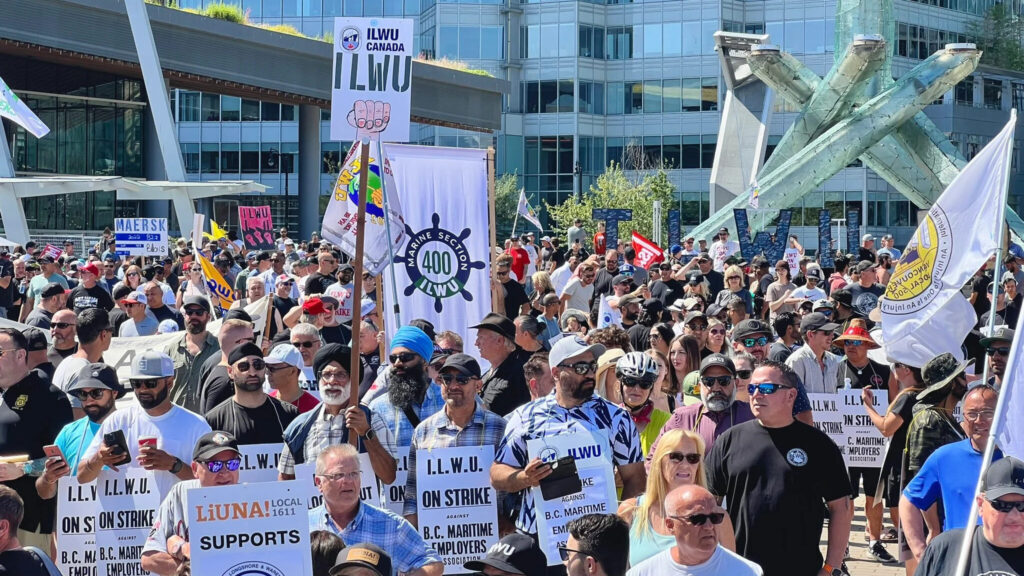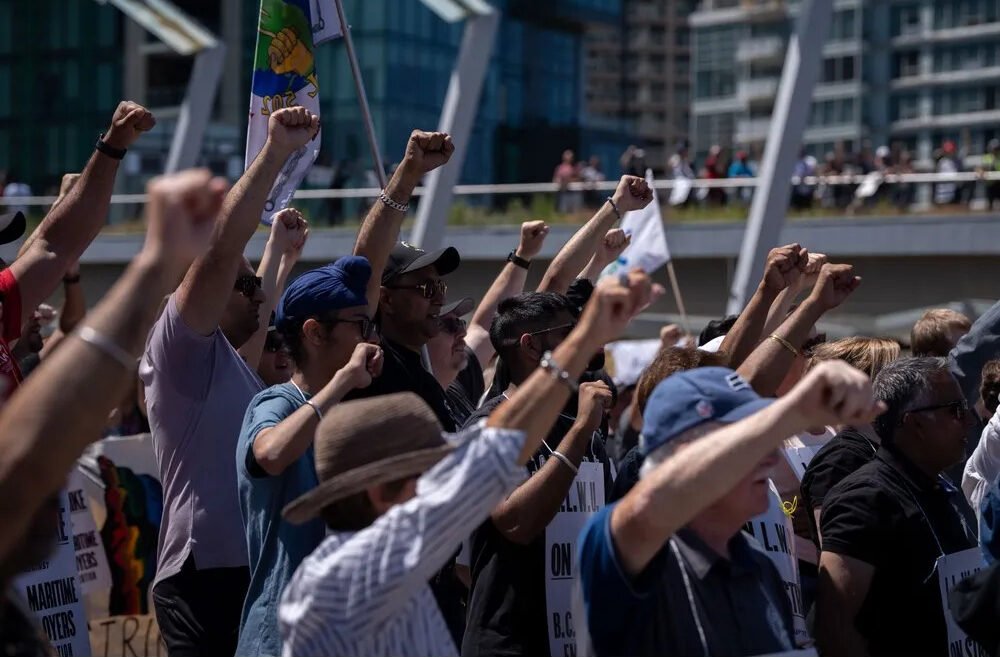After weeks of negotiations, strikes and pressure from Canada's Minister of Labour, the 7,400 port workers in British Columbia who have been in dispute with the government since the beginning of July have once again rejected an agreement proposed by the federal government with the aim of resolving the situation quickly. On Sunday evening, the union indicated that it had reached a new tentative agreement and that the members' decision would be made public on Friday. If rejected, according to Labour Minister O'Regan, the Industrial Relations Board will have to "impose final arbitration".
Repeated statements of this kind by the federal government, expressing its desire to impose a contract on workers without their consent, have revealed throughout this dispute its complicity with major employer lobby groups such as the British Columbia Maritime Employers Association, the Canadian Federation of Independent Business and the Canadian Manufacturers and Exporters Association.
The strike started on July 1st, when 7,400 Port Workers represented by the ILWU (International Longshore & Warehouse Union) local 500 walked off the job to fight against the British Colombia Maritime Employers Association’s intention to kill unionized jobs by outsourcing maintenance work to cheaper, non-unionized contractors, as well as stagnating wages amidst a rising cost of living.
ILWU Canada President Rob Ashton expressed his frustration with the BCMEA at the start of the strike, stating, “Their only objective is to take away rights and conditions from longshore workers after having gorged themselves on record profits during the pandemic”. After the ILWU's contract with the BCMEA expired in March, and following two months of bargaining, the Union voted for a strike action with ninety-nine percent of members in favor.

The federal government was quick to intervene on the side of the BCMEA and the 49 multi-national corporations it represents. They appointed a mediator from the ministry of labour to draft an agreement and end the strike quickly, what Labour Minister Seamus O’Regan called “a forceful nudge”. The mediators gave the union a 24-hour ultimatum to accept their proposed agreement, which the union rejected on July 13.
At that time the Canadian Manufacturers and Exporters association stated "We urge the federal government to deploy any measure at its disposal, especially back-to-work legislation, that will bring the quickest end to the strike. Any delay will only add to the damage done to manufacturers, the economy, and Canada’s global reputation.” On the same day Prime Minister Trudeau convened the Incident Response Group, which has previousley included representatives of the Canadian military and security services, and instructed them to pursue "all available options", effectively threatening to legislate an end to the strike. The union leadership responded to this bullying by reccomending the deal to its membership, who voted to reject it on July 18.

The longeshore worker's decision to strike froze shipments going in and out of 30 cargo terminals in B.C., leaving trains backed up for miles and container ships idling outside of the Vancouver harbour. This led to a country wide slow down in the production and distribution of goods, causing panic among politicians and major corporate lobbyists who proceeded to strongly advocate for strike breaking legislation.
From the outset of the strike, Canada's major media outlets published a multitude of articles decrying the strike as reckless to the Canadian economy and calling on the federal government to intervene. Yet, according to these major media groups owned by wealthy Canadian oligarchs, there seemed to be nothing irresponsible about BCMEA relocating jobs and refusing to raise wages despite record profits. On the contrary, they blamed the workers for disrupting the economy through their resistance.
Maersk, a Norwegian shipping giant represented by BCMEA, made over $100 billion in profits in 2022, $30 billion more than the previous year. Hapag Lloyd made over $25 billion in profits and smaller shipping agencies such as Hyundai Merchant Marine and Evergreen also posted record profits of $20 billion and $15 billion respectively. Despite the fact that it was their work that generated these profits, the workers were branded "unreasonable" for demanding better treatment.


